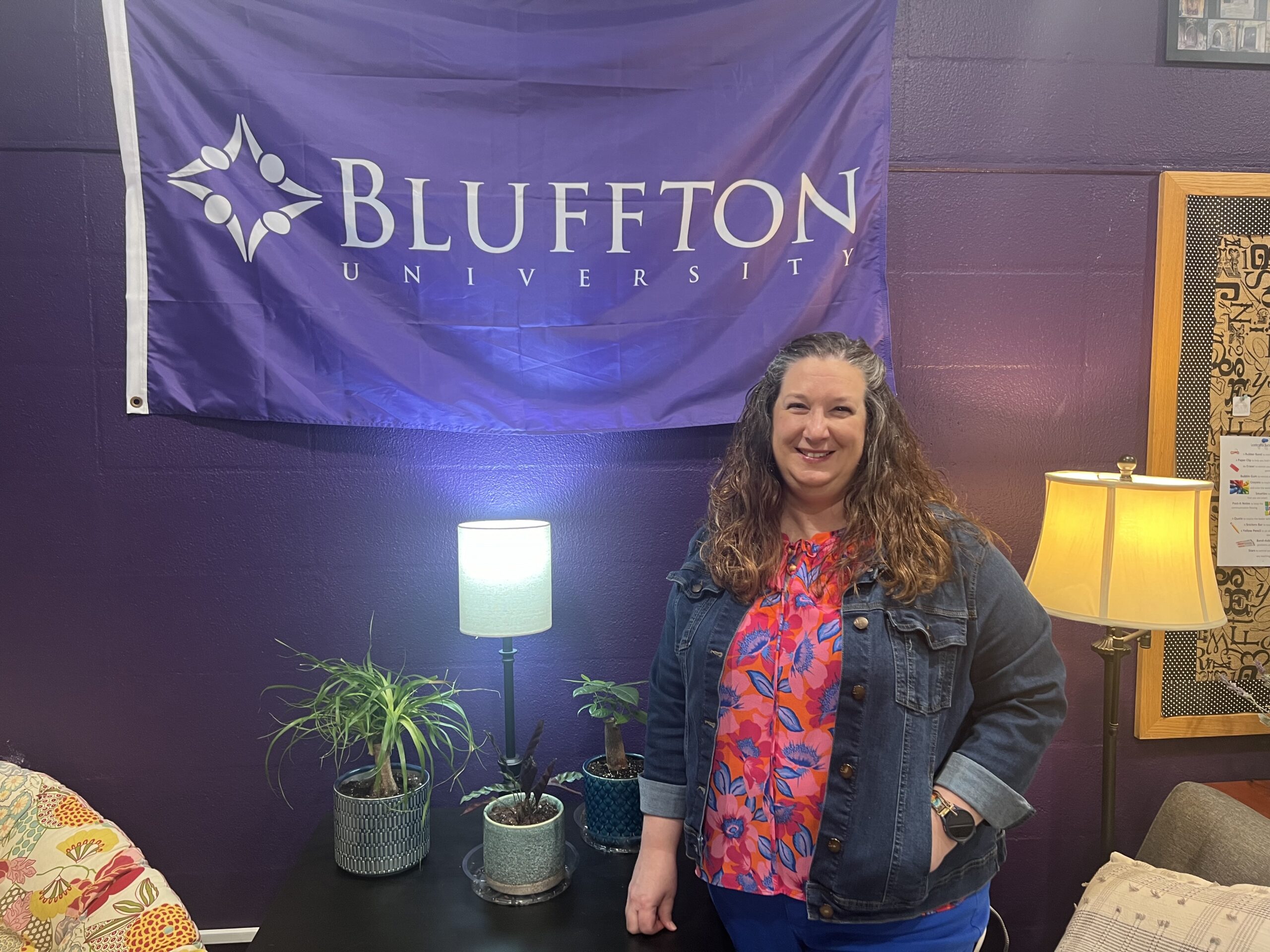Editor’s note: This is the second of a series exploring campus changes over the last four years. The first was the author’s preview of the project, and the second was exploration of the campus experience.
After interviewing over 100 students, faculty and staff I noticed patterns in responses. When speaking with over 60 students I observed repeated discussions of expectations not being met, uncertainty of what was expected of them — misunderstanding of what specific policies and procedures entail — and limited accountability from the university. When speaking with faculty and staff there were repeated discussions of changes in expectations due to the Covid-19 pandemic and overall growth of the university over the last four years.
Amplifying student cries for a Community of Respect
As Bluffton University students, we hear the phrase “Community of Respect” in orientations, Enduring Values courses, Forum presentations and conversations with faculty and staff.
The university website offers this explanation: “Bluffton strives to be a community of respect where everyone is held in mutual high regard. Our belief that every human being is created in the image of God demands that we recognize in each human being that divine spark, and that all of us welcome and celebrate the diversity in which we have been created as children of God. As members of the Bluffton University community, we strive to treat with respect each member of the community. Our standards of campus conduct are based on the mutual respect we believe we are committed to extend to each other.”
Following a football game on Oct. 23, 2021, President Jane Wood reminded the campus community via email of what the Community of Respect meant.
“Bluffton University was founded in the peace-church tradition, maintains a Community of Respect, and does not tolerate any type of violence towards others,” wrote Wood.
The email stated that a student-athlete sustained injuries and had to be taken to the hospital for further medical care after an incident in the football locker room and four students were dismissed from the football team following the incident.
There have been changes in football staff since the incident with Head Coach Matthew Nardo stepping into the role in December 2021.
On Aug. 30, 2022, the student Community Connection email included a note from Senior Director of Student Development, Wellness and Prevention and Title IX Coordinator Mark Bourassa on hazing prevention training required for all coaches, advisors, student-athletes and members of a student organization.
On Oct. 25, 2022, the student Community Connection included a note from Director of Diversity, Equity, and Inclusion Tyson Goings. The note addressed issues with “discrimination and acts of hate” on campus.
“This aligns with Bluffton’s Community of Respect philosophy that members of our campus community respect others even if they have viewpoints and experiences different from our own,” said Goings.
The email also stated that it was not intended to restrict academic freedom or freedom of discussion.
“Either students have no idea what the Community of Respect is — or respect in general — or they just don’t care,” said senior sports management major Grace Fillinger, who was among those who had personal items stolen from a locker room. “I don’t remember it ever being like this.”
The Community of Respect has been a more frequent topic of discussion this academic year with at least four locker rooms being broken into. Vice President of Advancement and Enrollment Management Robin Bowlus says the break-ins were brought up in a Bluffton University Cabinet meeting on April 24.
Bowlus says the Cabinet is very concerned about the number of break-ins that have been happening recently.
“Steps are going to be taken to install more security cameras on campus,” said Bowlus. “Which none of us really like. But there has to be accountability. We have a responsibility to ensure accountability takes place.”
The process of putting cameras in across campus is underway for next fall according to Bourassa.
“We [administration] struggled with the decision to put in cameras because it goes against the truth and integrity side of the Community of Respect and our campus Honor Code,” said Bourassa.
Cameras will not be placed in student rooms or hallways, only shared spaces across campus.
As of right now, Bourassa says that when the cameras are placed on campus there will not be constant monitoring. If an incident occurs the camera footage will be examined
Bowlus told The Witmarsum that years ago students used to leave their backpacks along the walls in The Kiva when going for meals. Students weren’t afraid to leave their belongings. The marketing team made note for it to be mentioned during tours to show the safe community environment on campus.
“And then we started having students’ backpacks broken into, and we were like “Oh, well that was stupid,’” said Bowlus. “Unfortunately in our society these are our realities. I think we are a place where we just have to continue to teach the Community of Respect. But we will also have the realities.”
Bowlus reiterated that the recent situation of break-ins is still very concerning.
What happens in extreme cases like the incident on Oct. 23, 2021? What happens when the damage has already been done and the victims’ only comfort comes from rewinding the footage?
“I expect to feel safe on campus,” said senior exercise science major Shelby Case.
Modifying Campus Conduct policy
When a violation of campus policy occurs on campus the incident report is passed on to the Campus Conduct Board (CCB) for review. CCB contains one elected faculty member, one elected student senator and one additional faculty or staff member chosen by recommendation to review the violation for final action to be taken.
Walt Paquin, professor of Social Work and the director of the Social Work program, served on the Campus Conduct Board as chair from 2014 to 2016 and 2020 to 2022. He stepped down from the chair position in 2022.
Paquin said during his first two years the board would receive between three and five cases a semester. The cases were often students appealing for a better grade, a faculty member charging a student with plagiarism or a resident advisor making a mandatory report of alcohol use.
When the board determined a case was valid for review, the associate dean and the person making the original report would act as administrative officers. The general process was:
- Student pleads guilty or not.
- Faculty and one student are chosen to assist CCB in review process.
- CCB starts review hearing process.
- With input from all individuals involved in the case and review a decision is made
During Paquin’s 2014-2016 term the faculty present had a half-hour training session prior to each case they served on. The current CCB policy states, “Training of CCB members will happen once a semester.” In 2020 to Spring 2022 there were no trainings.
“In Spring of 2021 I was basically told there was no Campus Conduct Board anymore,” said Paquin.
The board was receiving no contact on cases for review from 2020 to spring 2022 when Paquin’s term ended. In spring of 2021 he contacted Vice President of Student Affairs and Athletics Phill Talavinia to confirm no cases had been given to the CCB for review.
According to Paquin, Talavinia responded over the phone saying there were no cases because everyone had taken responsibility for violating the honor system. This is the standard used for everything from cheating to violating the alcohol policy.
At the end of the 2021 spring semester Paquin had a meeting with Talavinia and the Associate Dean of Academic Affairs and Professor of Religion Randy Keeler where Paquin was told the CCB only decides if an appeal to a decision is warranted. This aligns with the current policy written in the 2022-2023 Student Handbook.
“I was advocating for a return to a more robust and engaged CCB but was told the current policy, that I read as relegating the CCB to an appellate body only was the way the school was going,” wrote Paquin via email.
The Witmarsum asked Talavinia for comment on how the Campus Conduct process has shifted.
“I was not involved at all and really didn’t pay much attention,” wrote Talivinia via email. “What I set out to do is be consistent while understanding that each conduct report is unique. What I have experienced is that the students are very cooperative with me.”
Talavinia believes the Campus Conduct policy is effective. He also believes students can be helpful before a situation becomes something he needs to deal with.
The CCB technically still exists and is chaired by Cynthia Bandish, professor of English, English Department chair and the director of the Writing Center. However, there is a new system for the CCB.
The new policy, which was changed in 2021 to better align with what had become practice, states that any student accused of violating a standard or the honor system is referred to an administrative officer. The policy does not state who the administrative officer is.
“My assumption is Phill serves in that role,” wrote Paquin via email. “I think this is part of the issue. There is a lack of transparency and very few people are involved in this process anymore.”
With the old and new systems, the Student Senate had a designated position for a student to be present at CCB review hearings. However, the position now falls under the duties of the senator designated to Student Life.
Senior business administration, marketing and communication triple major and designated Student Life senator Elizabeth Rockwell said she has attended one Campus Conduct Board review hearing in the year.
Stalled revamping of Restorative Justice practices
Restorative justice practices are taught as part of the curriculum for the Bluffton University Criminal Justice major.
Assistant Professor of Criminal Justice Michael Barrett teaches that the restorative justice process in the criminal justice setting puts the victim and defendant in the same room with a facilitator. This is done so victims can ask questions to the defendant to help with understanding and closure. It is not always the case in other settings that both parties are in a room together, depending on the wishes of the victim.
Prior to the 2020 Covid-19 pandemic Bluffton had its own restorative justice process. If a student was charged with a minor infraction they had the option to either pay a fine or partake in restorative or community service.
“Restorative justice can make things work better, like an intervention without the formal process,” said Barrett.
Barrett was in the process of revamping the Bluffton’s approach to restorative justice as part of the conduct process alongside Tyson Goings and the rest of the residence life staff when Covid-19 hit. The revamp was needed to discuss what incidents would qualify for restorative justice after permission from the victim.
Over half of the students interviewed stated they would rather pay a fine than participate in restorative justice or community service. Barrett said this was one of the reasons for revamping the program.
“Covid came and it was pushed off to the side,” said Barrett.
He says he was contacted by Goings in August of 2022 saying there was an interest in the re-establishment of the restorative justice process.
Barrett was then invited by President Jane Wood to be in a restorative justice training session to create a group on campus to handle bias related incidents — similar to the Title IX team — happening the following weekend. Barrett said he could not attend due to the late notice.
Barrett has not been contacted for any further training or meetings on the group since then.
Emerging classroom expectations
Only two out of over 60 students mentioned anything about academics when asked about their college experiences.
Bowlus says that is likely because of Covid creating Generation Pandemic (Gen-P). This includes college freshman of 2019 to students in the second grade at the start of the pandemic.
“The freshman ended their first year of college in a pandemic,” said Bowlus. “Then you have the young kids who missed the basics because of the pandemic.”
Bowlus attended a conference in Chicago where statistics proving learning loss within Gen-P were provided through a study from the University of Texas at Austin. The study tracked failure rates in calculus and psychology 101 courses before the pandemic to now.
The normal (pre-pandemic) failure rate in the two courses was between four and five percent. Beginning in 2020 the failure rate in those courses have climbed to between 20 and 25 percent.
Along with the learning loss apparent in Gen-P students, they are also less persistent, unable to handle things that are not easy, much more dependent on adults, under socialized, unable to get along with others, more prone to physical violence as their first response to stress and are disengaged and do not care.
A study from Inside Higher Ed found similar results as well as frustrations in transitioning back from online learning.
“Twenty to 30% of students don’t go to class or do assignments and they have no guilt,” said Bowlus.
In the last story of this series, Experience, Assistant professor of biology Sarah Lehman observed her students being disengaged and unwilling to work together in groups since Covid. Professor of economics, Howard Raid Professor of Business and Divisional Council member Jonathan Andreas had the same observation in one of his courses.
Andreas says the use of electronics has increased since the start of pandemic making students less engaged.
“They even ignore their classmates sometimes [during group activities],” said Andreas. “It’s just a small group and they are ignoring the people sitting right next to them.”
Freshman college students of 2019 are less likely to have the learning loss, but still have a higher dependency on adults than other classes.
“If the pandemic wouldn’t have happened your class [freshman of 2019] would’ve detached more so from your parents like a college student should,” said Bowlus. “You didn’t have that separation.”







